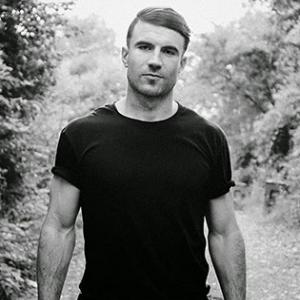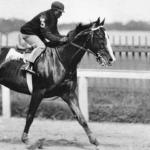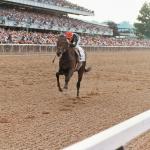
Breeders’ Cup Flashback: 1984 a Pop Culture Watershed
Pop Culture
“Morning again in America.” Silicon Valley takes on Big Brother at the Super Bowl. A celluloid poet of teen angst captures the Zeitgeist. The best basketball rivalry of all time resumes, and gets even better. And four music icons dominate the Billboard charts just as a newfangled small plastic disc encoded with digital data hits the music marketplace.
1984 was a watershed year in American culture in many ways, and Thoroughbred racing was a big part of it. In 1982, Gainesway Farm owner John Gaines announced during Kentucky Derby week the concept of a world championships event for racehorses, and 2 ½ years later the ambitious idea became grand reality at Hollywood Park in Los Angeles with the inaugural Breeders’ Cup. Seven races were held on Nov. 10, featuring $10 million in purses and broadcast by NBC. The event culminated with what was then the world’s richest race: the $3 million Breeders’ Cup Classic, won in an upset by Wild Again.
Let’s take a look back at some of the cultural touchstones of 1984, a year when horse racing was a mainstay of the front fold in the daily newspaper sports page, when teenagers routinely drew the ire of their parents by hoarding all of the land-line telephone time, when a “Footloose” Kevin Bacon introduced dance-pop liberation to a sheltered Bible Belt town, and when “MTV cops” Crockett and Tubbs first chased drug dealers through the streets of South Beach in sports cars on the groundbreaking “Miami Vice.”
Bird vs. Magic, Chapter Two
There were many great sports moments in ’84 to join the Breeders’ Cup as history-making events, not the least of which was the emergence of a 104 game- and World Series-winning juggernaut from the Motor City in Sparky Anderson’s Detroit Tigers. There was also the ’84 Summer Olympics in Los Angeles, the second Olympic Games in a row diminished by a Cold War superpower boycott. But the most enduring matchup came in the NBA Finals, where former NCAA Championship game foes Larry Bird and Magic Johnson led the Boston Celtics and Los Angeles Lakers to their first meeting since 1969. The Celtics won the dramatic seven-game series 4-3, jumpstarting a golden era in the NBA that, many would argue, was instrumental in creating the globally popular league we know today.
John Hughes’ Teen Chronicles
“Amadeus” orchestrated a near-sweep of the top hardware at the ’85 Oscars, but out in the American shopping-mall multiplexes, the cultural vibe was decidedly different. Teen alienation was all the rage, following up on the success of movies such as “Fast Times at Ridgemont High” a few years earlier, and ’84 was the year a relatively unknown writer-director surfaced to channel those emotions into hugely popular entertainment. “Sixteen Candles” premiered in May, captivated adolescent audiences that summer, and made Molly Ringwald the quintessential movie teenager of the ‘80s. That started a run of hit films for John Hughes that lasted for roughly the next 10 years, with “The Breakfast Club” next up in 1985, and, despite some dated characters, plot lines, and stereotypes, many of them have stood the test of time to appeal to younger generations.
“Reagan: The Sequel” Draws Record Crowds
Former Hollywood actor and Republican California governor Ronald Reagan defeated incumbent Jimmy Carter in the 1980 Presidential election with an appealing combination of charisma and a strongly pro-business, anti-government platform. Four years later, after an economic recession led to sustained high interest rates from the Federal Reserve and a boost in government spending, inflation was beaten, the stock market was ascending, and Reagan unveiled an advertising campaign for the ages to help him win re-election. While Democratic candidate Walter Mondale called for tax increases, Reagan’s television commercial narrator simply said it was “morning again in America” and that the country’s positive momentum was infinite. The end result? A 525-to-13 electoral college wipeout and the establishment of Reagan as a conservative icon that continues to the present day.
A Giant Leap in Tech
George Orwell may have envisioned 1984 as a nightmarish dystopia of oppression and paranoia living under a constant-surveillance state – but out in the country, Americans’ opinions on technology were far rosier. Pac-Man, Atari and Coleco Vision, the world-conquering Sony Walkman … the list goes on and on. And to top it all off, from Cupertino, Calif., came a revolutionary product for the home and office whose reverberations have yet to subside. A landmark Ridley Scott-directed Super Bowl commercial announced the Apple Macintosh personal computer, featuring a point-and-click “mouse”-based desktop interface that crushed all previous iterations with sledgehammer finality. Computing for the masses was born, and the Mac led us through the Microsoft Windows monopoly years to the brief heyday of Netscape and AOL and into the here and now, where – with Apple setting the standard once again – mobility reigns supreme.
Pop Music’s Blockbuster Foursome
SoCal’s beloved Van Halen may have “Jump”-started 1984 with their same-titled LP, but the first quarter of the year was dominated by the ongoing chart success of Michael Jackson’s “Thriller,” which was released in late 1982 and would eventually become the best-selling album of all time. Then, that summer, within the span of three weeks, two more albums were released that propelled their creators to the rarefied air where the Gloved One made permanent residence. Bruce Springsteen’s “Born in the U.S.A.” dropped on June 4, followed on June 25 by the fifth album from a Minneapolis musical genius known as Prince, the soundtrack to his first movie, “Purple Rain.” Each record would sell over 13 million copies and counting, and from July 7 to the end of the year, “Born in the U.S.A.” (four weeks) and “Purple Rain” (21 weeks) held the top spot on the Billboard 200. Then, in November, Madonna’s second album, “Like a Virgin,” was released. The pop music, dance, and fashion pioneer from Michigan by way of lower Manhattan would join Michael, Bruce, and Prince in defining the 1980s for millions of music listeners, most of whom made the switch to the shiny new compact disc (commercially introduced in the U.S. in 1983) to get their musical fix by decade’s end.
Top Ten List: Pop Culture Influencers Born in 1984
.jpg?itok=yvH52Lk_)
Katy Perry
Claim to fame: Global pop superstar
.jpg?itok=TuRLNj_2)
LeBron James
Claim to fame: Three-time NBA champion; his generation’s Magic (and Larry)

Scarlett Johansson
Claim to fame: Actress balancing art cinema with action movies since age 18

Prince Harry
Claim to fame: Offspring of iconic 1980s couple; British royalty

Mark Zuckerberg
Claim to fame: Inventor of Facebook; future ruler of Earth
.jpg?itok=ZnHmLc96)
Avril Lavigne
Claim to fame: Did for 2000s teen pop what John Hughes did for 1980s teen movies

Khloe Kardashian
Claim to fame: First-ballot inductee, along with family, in reality TV hall of fame

Kate McKinnon
Claim to fame: The definitive Hillary Clinton and Kellyanne Conway on "Saturday Night Live"

Sam Hunt
Claim to fame: Head of the class in next wave of country music (male division)

Trevor Noah
Claim to fame: Bringing "The Daily Show’s" infotainment to a new generation










